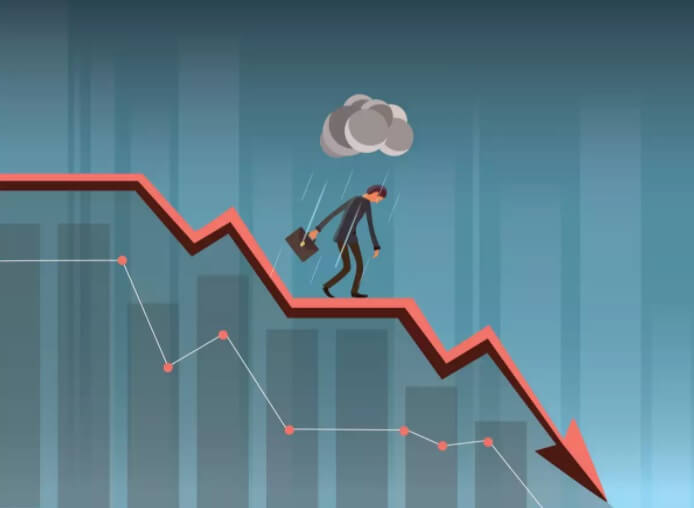The coronavirus pandemic has caused severe economic and social disruption worldwide. Not only a health crisis, but it has also wrecked havoc in financial markets, disrupting economic activity.
Some businesses were shut, while others came to the brink of financial collapse. But the proverbial light at the end of the tunnel is now visible, with vaccines to protect immunity in the offing.
Although it is early to predict the economic environment in the near future, it is high time to start devising a business strategy for post COVID-19 economic activity.
Businesses with an exit strategy in place during the post-pandemic era are better prepared to give the extra push to their business needs. If you are still confused in formulating an exit-plan, the following guide can be your savior.
Some tips that can come in handy to restart the business are as follows:
1) Assessment of financial damage

The preliminary step is to gauge the damage inflicted on your small business by months of lockdown and the resulting null economic activity. There are different layers to assess the damage; however, the first step is to update the financial numbers. Update yourself with the financial statements that include the profit/loss and cash flow.
Compare the numbers in hand with the past financial year to get a rough idea of the business reality. Not just the numbers, take a holistic approach to your business, including the layoffs, customer migration to competitors, and pending loans.
2) Accepting the ground reality and work around it
COVID-19 crisis has changed many things, including the way we live, work, and shop. Due to the inability to engage customers in a physical environment, most businesses have moved on to the online platform for survival. This is the new normal, and businesses must adjust accordingly. People are now more inclined to shop online to avoid busy markets, and the trend is likely to continue.
A business must understand and learn from the changed scenario. Restaurants have to deliver food at home, and so does the local kirana store or chemists. The small businesses must learn and adapt. They should play to their strengths while working on their weakness.
Also Read: Mistakes to Avoid When Applying for a Personal Loan!
3) Assess the fund requirement

Small businesses always need fresh capital requirements during the lean season to stay afloat, so it is unlikely that they are cash surplus after the pandemic. It is thus advised to have a complete business plan available to determine the funds required.
There are different sources of finance and small business loans in India is one way to finance your business. Augment resources by applying for a business loan to tide over the fund crunch.
Some government schemes that can help in securing loans for small business are:
- MUDRA loans
- MSME business loan in 59 minutes
- Credit guarantee fund scheme for small and micro businesses
- National small industries corporation subsidy
- Credit link capital subsidy scheme for technology up gradation
In addition to the above government schemes, a businessman can also apply for term loans from banks or other financial institutions such as NBFCs or online lending institutions.
The loans offered to small businesses are of two types:
| Unsecured loans | No collateral is required to secure the funds; however, the interest rates charged are high. |
| Secured loans | Collateral is required in terms of land, equipment, raw material, etc. The interest rates are low. |
Applying for a business loan is only one part of the puzzle to secure finances and start rebuilding. Repayment of loans in a dull business environment is another. Although the government has relaxed the procedure to recover loans in the present scenario, both loan options are fraught with lower business off-take risks due to grim economic activity.
4) Revamped budget and altered business strategy

The pandemic exit strategy requires more effort on the part of businesses to re-plan and re-plug. Train your staff, employ a new business model with online sales as apart of your plan, restock inventory; all of this needs more money. You have to spend more on advertising while cutting down on unnecessary expenses. So, initially, more money may be required to put a plan in order and then reap profits.
The objective is to be financially prudent and maintain lean operations with minimal loss. Once recovered, you can invest in growth.
5) Rebuilding the timeline is necessary

A business plan must have a timeline to rebuild and move on to its past growth path. You may initially have to focus on returning the money taken as a loan and survive the crisis. Once the loans are repaid, and the economic environment stabilizes, you can work on the expansion of the business.
The first objective of any business is to survive, apprise the past customers of your working and try to get new clients. After a while, you can look to hire more staff and perhaps spend on expansion.
6) Keep a contingency plan ready to face any adversity in the future
The pandemic, though, looks like a one-time scenario, but the small business must learn to survive in odd conditions. It is essential to eliminate unnecessary spending and even encourage a few staff members to work from home to save costs. Business strategy should be re-shaped to generate more liquid funds in business by reducing debts, leverage technology, etc.
It is equally important to adopt new technology and have out of the box thinking to be fund surplus. If the adversity strikes again, you are in a better position to weather the storm than to capitulate under it.
Also Read: New Small Business Ideas in India with Low Investment to Men, Women and Students
In Conclusion:

The pandemic has damaged the economic environment, and many countries are reeling under the financial recession due to it. Small businesses are the worst hit during the crisis because of multiple factors but the primary being low cash generation and no footfall.
As the crisis has subsided and the economy is limping back to normalcy, a small business must draw a strategy that will help it to be prepared to gain a foothold and build on it as the economy stabilizes.
The first thing to restart the business is to secure finances. For this, one can apply for a business loan. There are government schemes besides other financial institutions offering small business loans in India. Once loans are secured, a business can take various steps to ensure there is no economic leakage, and the business adapts quickly to the changing business environment for success.
Guest Post by Ashish Gupta at LendingKart!
More Articles:
- Modi and Kohli, confront their biggest challenges
- Pandemic Makes Indian Billionaires Much Richer
- National Education Policy 2020
- Elon Musk Becomes World’s Richest Person
- Profitable Business Ideas!
- Cashless Economy in India
- Get Your Write-up Published?






